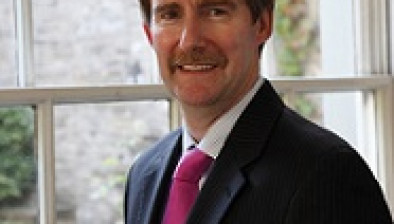Senior lawyers warn Brexit Britain on the road to ‘borders and broken agreements’

Borders and broken agreements lie ahead if the UK government stays its course on Brexit, according to speakers at the Hibernian Law Journal’s Checkpoint Cathal lecture in Dublin.
The lecture in the Law Society’s buildings on Blackhall Place heard from Senator Michael McDowell SC, member of the Seanad Brexit Committee; Professor Colin Harvey of Queen’s University Belfast; and Miriam González Durántez, senior partner at Dechert LLP and wife of former UK Deputy PM Nick Clegg.
Ms Justice Bronagh O’Hanlon chaired the lecture.
Each speaker detailed the difficulties and dangers posed by Brexit for both Ireland and the UK, and of their personal experiences in dealing with the issue in their professional capacities.
Professor Harvey, an expert in Northern Ireland’s current constitutional and human rights framework, spoke directly against the Democratic Unionist Party line that there should be no post-Brexit “regulatory divergence” between Northern Ireland and the rest of the UK.
“Northern Ireland is already a constitutionally distinct part of the UK.”
He said: “Northern Ireland is already a constitutionally distinct part of the UK. None of the proposed solutions for the North are a violation of UK sovereignty … Rather than pay lip service to the Good Friday Agreement, it is high time to apply it.”
On the prospect of a “hard Brexit”, which would not only introduce a hard border, but would likely undermine the legal and political foundations of the Good Friday Agreement and damage the political, social and economic wellbeing of people in the North, he said: “If a distinct solution cannot be found to accommodate Northern Ireland, it would be legitimate to hold a referendum on Irish unity … Brexit transforms the old debate on a united Ireland to one that is directly related to the future welfare of the people both north and south.”
Ms González Durántez drew on her experience as a pro-European and pro-UK actor. An example of the vast number of EU citizens in the UK who feel shaken by Brexit, she lives and works in the UK, is married to one of the UK’s most prominent politicians and has three British sons – giving Brexit a deeply personal context for her.

Heavily criticising the UK government’s “blind spot in Northern Ireland”, she spoke of the UK government’s naïveté that an easy technical fix might be found to 310-mile-long border: “Any hope that we can solve the deep political crisis that Brexit has embroiled Ireland in with a quick technical solution is fundamentally misguided.”
Senator Michael McDowell SC, who at various points of his political career has held office as Minister for Justice, Tánaiste, and Attorney General, now sits on the Seanad’s special committee on Brexit. He summarised both his regret at the Brexit decision and his desire to make the best of the situation with the Latin in quibus et nossumus – we are where we are.

Speaking on the dangers that Brexit poses for the stability of the North, he said: “In terms of realpolitik, the Good Friday Agreement could never have existed if both states were not within the EU. The EU, with its single market, provided the economic basis for peace.”
He spoke also of his deep disappointment in what he saw as the UK’s government abandonment of the principles of the Agreement.
In particular, he stated the principle that both the British and Irish governments behave as “neutral parties” to both unionists and nationalists has now been abandoned as the Conservative government is now propped up by the hard-line Democratic Unionist Party.
Mr McDowell said: “For the second time in a hundred years, the selfish internal interests of the Tory party have been prioritised against the peace and economic well-being of the people of Ireland.”
He took aim at the Tory right’s plan to leave the European Convention of Human Rights after Brexit: “The ECHR has a quasi-constitutional status in the North, all Assembly legislation must be in accordance with the ECHR … This is a direct attack on the Good Friday Agreement and the existing constitutional balance on Northern Ireland.”
All speakers spoke of their deep disappointment with the UK government’s approach to Northern Ireland for displaying either ignorance or contempt for sensitive issues around the North.
Likening its stance to an abandonment of the peace process, Professor Harvey said: “If the UK government has left the building, we on this island need to have a grown-up talk about moving forward ourselves.”
Kevin Burns, Irish Legal News









